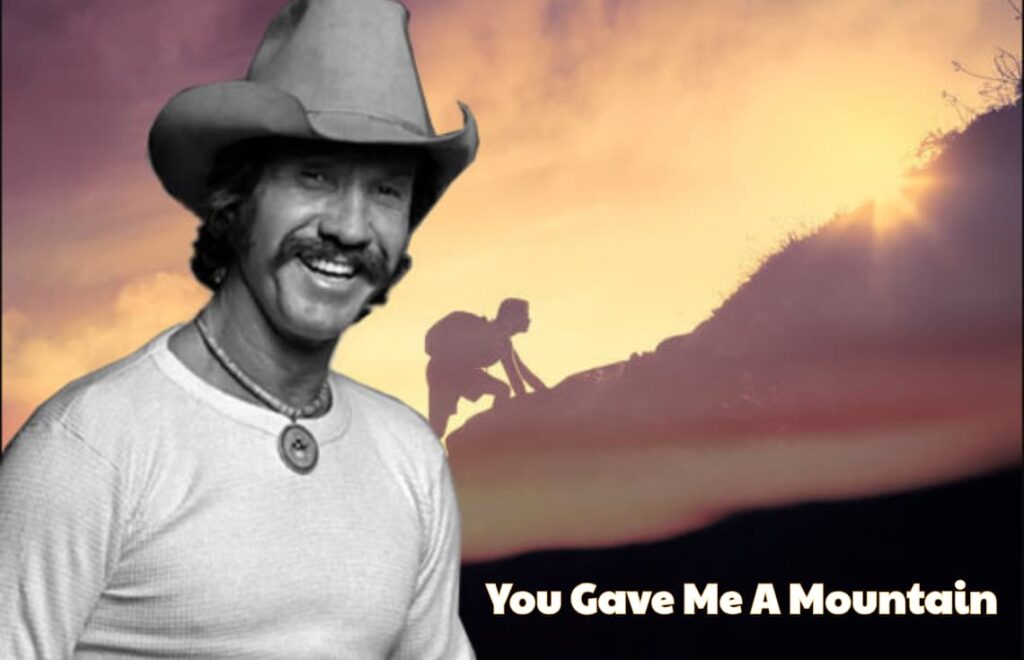
A Song of Unyielding Faith and Herculean Burdens
For those of us who have walked a few miles, who have seen the sun set on more days than we can easily count, certain songs don’t just play; they echo through the halls of our memories. They are the soundtracks to seasons of joy and, more often than not, the quiet companions through the long, solitary nights. Marty Robbins’s enduring classic, “You Gave Me a Mountain,” is one such song—a profound and poignant testament to enduring hardship with an unwavering spirit.
Released in 1969, a year of profound societal shifts and global introspection, the song resonated deeply. It climbed the charts, reaching a respectable No. 7 on the Billboard Hot Country Singles chart, a testament to its powerful message and Marty Robbins‘s masterful delivery. Its parent album, also titled “You Gave Me a Mountain,” further solidified its place in the canon of great country music. But chart positions, while important, only tell a fraction of the story. The true impact of “You Gave Me a Mountain” lies in the heart-wrenching narrative it unfolds.
The song’s origin is as fascinating as its lyrical content. It was penned by the legendary songwriter Marty Robbins, whose incredible talent for storytelling was matched only by his soulful voice. However, many people credit it to Marty Robbins himself, as his rendition became the definitive version. The song’s story is a simple one, yet it holds the weight of the world. It’s a desperate plea from a man who has lost everything: his wife, his children, his home, and his financial stability. He stands at the foot of a new “mountain,” a new trial, and questions his purpose, his faith. He doesn’t ask for the mountain to be removed; he asks for the strength to climb it. It’s a prayer of profound humility and a fierce resolve to press on, no matter the cost.
The true genius of “You Gave Me a Mountain” lies in its double meaning. On the surface, it is a song about a man burdened by life’s relentless trials. The “mountain” is a metaphor for the seemingly insurmountable challenges we all face. But beneath this layer of personal struggle is a deeper, more spiritual message. The song is also a conversation with a higher power. It’s a man grappling with his faith, questioning why a loving God would give him so much to bear. Yet, he never loses his faith. The song concludes not with a demand for relief, but with a humble acceptance of his fate and a quiet plea for the strength to endure. It’s a beautiful and complex portrayal of the human spirit in the face of immense adversity.
For many of us who first heard this song in our youth, it may have simply been a sad tune on the radio. But with the passage of time and the accumulation of our own mountains—of lost loved ones, failed dreams, and unforeseen setbacks—the song’s meaning has deepened. We hear Marty Robbins’s voice not just as a singer, but as a fellow traveler on life’s difficult road. His performance is a masterclass in emotional delivery, his voice thick with a weary resignation that is at once heartbreaking and inspiring. It is a song that reminds us that we are not alone in our struggles and that even in our darkest moments, there is a quiet strength within us, a strength given to us to face the next climb, and the next. This is a song that grows with you, a companion for a lifetime of trials, big and small, a timeless classic that reminds us to never give up, no matter what mountains we are given.